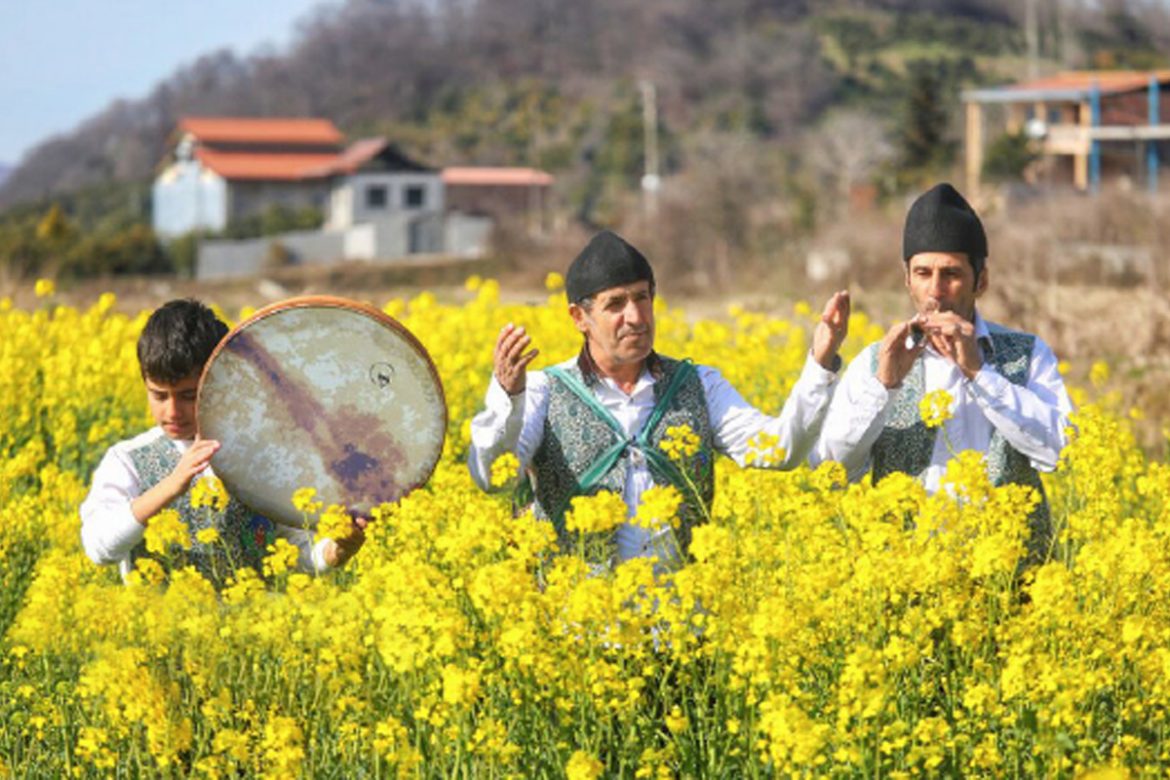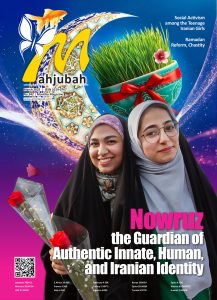The Importance of Family from the Viewpoint of the Holy Qur’an, the Blessed month of Ramadan, and Nowruz
The coincidence of the blessed month of Ramadan, the spring of the Quran, with the spring of nature and the celebration of Nowruz – along with its traditional rituals, particularly the emphasis on kinship and family bonds – inspired me to explore the importance of family from the perspective of the Quran. Following this, I aim to discuss the unique opportunity that the blessed months of Ramadan and Nowruz provide to strengthen familial ties.
From the perspective of all divine religions, including Islam, the family is considered to be the very foundation of society. The basic pillars of this foundation are a man and a woman, whom God created with a shared human identity. As such, no institution is more beloved to God Almighty than the family. The family serves as the cornerstone for preserving national, cultural, and moral traditions, as well as the center for nurturing emotions and raising a healthy and righteous generation. Religious teachings place great importance on maintaining these close family bonds and firmly oppose their disintegration. Honoring parents and preserving the ties of kinship are emphasized in numerous verses of the Holy Qur’an. The integrity of the family system in Islam ensures the enduring connection of its members throughout their lives. The relationship between a child and their parents and ancestors, and vice versa, is sustained within the family unit, reflecting its profound significance in Islamic teachings.
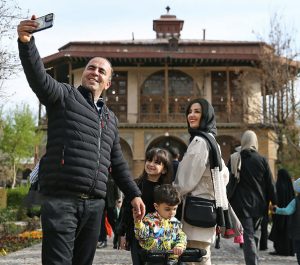 In the modern era, as family life faces various threats and challenges, psychologists and sociologists have reached an important conclusion: one of the most effective ways to protect humanity from the numerous threats and mental and psychological problems stemming from the Western lifestyle is to preserve the warm and loving family unit. Fostering a sense of belonging and love among individuals toward this vital institution and its members is essential for maintaining emotional stability and societal well-being.
In the modern era, as family life faces various threats and challenges, psychologists and sociologists have reached an important conclusion: one of the most effective ways to protect humanity from the numerous threats and mental and psychological problems stemming from the Western lifestyle is to preserve the warm and loving family unit. Fostering a sense of belonging and love among individuals toward this vital institution and its members is essential for maintaining emotional stability and societal well-being.
Members of stable and transcendent families are considered to be the strongest supporters of one another. In this approach, individuals move beyond individualism and materialism, adopting a spiritual perspective that prioritizes the growth and transcendence of their family members alongside their own personal development. This collective mindset fosters a harmonious balance between self-improvement and the well-being of the family as a whole.
In such a family, all individuals enjoy equal human rights. From this perspective, the family becomes a sacred institution, described in the Holy Quran as a profound covenant. This “deep covenant” signifies that in cases of moral agreement, family members live together in a dignified and honorable manner, while in cases of moral disagreement, they part ways with respect and goodwill. This approach ensures that the sanctity of the family is preserved, regardless of the circumstances.
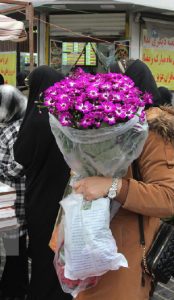 One of the important and key concepts in family studies is the concept of solidarity, i.e., unity, harmony, and loyalty that arise from shared interests, feelings, empathy, and collective actions. Islam emphasizes that the marital bond should have a divine purpose rooted in mutual respect, compassion, and a commitment to fostering a spiritually fulfilling and harmonious relationship.
One of the important and key concepts in family studies is the concept of solidarity, i.e., unity, harmony, and loyalty that arise from shared interests, feelings, empathy, and collective actions. Islam emphasizes that the marital bond should have a divine purpose rooted in mutual respect, compassion, and a commitment to fostering a spiritually fulfilling and harmonious relationship.
Islam establishes clear and concrete principles for family life. It places great importance on preserving lineage and societal structure, ensuring that the family is neither undermined by external forces nor weakened from within. Women play a central role in establishing the family, bringing affection, warmth, guidance, and emotional connection to the household. This ensures that the foundation of the family is built on the axis of love and friendship. In this framework, the role of women is elevated as the embodiment of divine beauty, complementing and harmonizing with the role of men, thereby creating a balanced and spiritually enriched family unit.
A family that is centered on the two pillars of affection and mercy possesses a solid foundation, and the children raised in such an environment become the source of the family’s stability. God Almighty has commands in the Holy Qur’an that spouses should maintain good relations and treat each other with dignity and respect. The husband and wife serve as the agents of establishing bonds of mercy and kinship between two families. The concept of the “womb” symbolizes unity and kinship, binding individuals together through a profound and enduring connection. This true bond, which exists among all relatives, carries tremendous moral, spiritual, and physical effects, fostering a sense of belonging, support, and harmony within the family. The importance of mercy and its profound effects on achieving human spiritual and mental well-being have been clearly emphasized in Islam and the Holy Qur’an. Mercy is recognized as one of the most powerful forces for healing, reconciliation, peace, and fostering friendship among people. For this reason, in Islam, the rewards for good deeds toward family members are described as far greater than those for good deeds toward others.
Islam considers the family to be the basis for the growth and progress of society and then mentions blood relations. In the words of the Holy Qur’an: “وَاتَّقُوا اللَّهَ الَّذِي تَسَاءَلُونَ بِهِ وَالْأَرْحَامَ” (Be wary of Allah, in whose Name you adjure one another and – of severing ties with – blood relations)
Respecting the ties of kinship is so important in Islam that God says: “Be wary of God and the ties of kinship.” In another verse, He mentions gratitude to God along with honoring one’s parents: “اشْكُرْ لِي وَلِوَالِدَيْكَ” (Give thanks to Me and to your parents).
In order to explain the importance of family cohesion, observing the ties of kinship, avoiding division, and the need to maintain unity, God Almighty refers to family members as ‘dhil-qorba’ (lit. close relatives) in the Holy Qur’an. Verse 83 of Surah Al-Baqarah states: “وَإِذْ أَخَذْنَا مِيثَاقَ بَنِي إِسْرَائِيلَ لَا تَعْبُدُونَ إِلَّا اللَّهَ وَبِالْوَالِدَيْنِ إِحْسَانًا وَذِي الْقُرْبَىٰ وَالْيَتَامَىٰ وَالْمَسَاكِينِ وَقُولُوا لِلنَّاسِ حُسْنًا” (When We took a pledge from the Children of Israel to worship no one but Allah, do good to parents, relatives, orphans, and the needy, speak kindly to them).
Given the importance and status of family, relatives, and kinship ties, ‘Silat al-Rahim’ (lit. associating and meeting with relatives and helping them) during the holy month of Ramadan – through acts such as sharing Iftar meals and sincere visits – has always held a special place among Iranian Muslims. Similarly, during Nowruz, Iranians have, since ancient times, placed great emphasis on visiting and meeting relatives, reinforcing family bonds and fostering a sense of unity and belonging.
During the blessed month of Ramadan, each family hosts an Iftar gathering to honor and strengthen kinship ties. With the father and grandfather as the central figures, they invite all relatives – including aunts, uncles, cousins, and their children – to come together and share a hearty and joyful time.
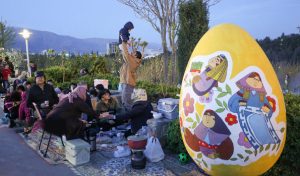
Today, all Iranians and Muslims recognize that this beautiful tradition and ritual contribute to better mental and emotional well-being. The coincidence of Ramadan and Nowruz this year provides a unique opportunity for Iranians to place even greater emphasis on this cherished tradition.
The glorious moment of breaking the fast with family members centered around grandparents, including uncles, aunts, cousins, and their children, strengthens the beautiful feelings of togetherness, love, and empathy. Setting the Iftar table, eating together, praying together, and then engaging in family activities fosters deeper attachment and affection among family members, reinforcing the bonds of the extended family. This sense of connection and warmth represents the very essence of humanity that has been lost in the modern era; a loss that has contributed to isolation, loneliness, and even despair.
Maintaining relationships with relatives and kinship ties, as a healing prescription of the revealed religion of Islam, serves as the only way for humanity to escape the impasse of loneliness and disconnection. During Nowruz, Iranians uphold the cherished tradition of visiting relatives, making efforts to travel near and far to meet their loved ones and celebrate the New Year together. It is customary for the younger members of the family to visit the elders first, a practice that reflects deep respect for seniority and tradition. Iranians welcome each other with open arms, exchanging heartfelt wishes for a happy and prosperous New Year. At the end of the visit, the elders often give children and young people a gift or money as an “Eidi” (festive gift), symbolizing their blessings and good wishes for the year ahead.
It is hoped that people around the world will embrace this good and meaningful tradition of Iranians and Muslims and benefit from its potential.
By: Dr. Fatemeh Ebrahimi Varkiani, Assistant Professor, Department of Women and Family Studies, Faculty of Social Sciences and Economics, Al-Zahra University


